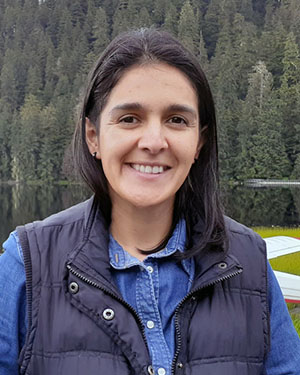
A new study published in the January issue of the online, peer reviewed Aquaculture Journal concludes that the water-filtering abilities of farmed kelp, an emerging industry in Alaska, could help reduce marine pollution in coastal areas.
“Some seaweeds are literally like sponges- they suck and suck and never saturate,” said Schery Umanzor, lead author of the study and an assistant professor at the University of Alaska Fairbanks’ College of Fisheries and Ocean Sciences.
“Although carbon and carbon sequestration by kelp received most of the attention, kelp is actually much better at mitigating excessive amounts of nitrogen than carbon,” she said. “I think that’s a story that’s really under looked.”
Nitrogen pollution in coastal areas can be caused by several factors, including urban sewage, domestic water runoff or fisheries waste disposal. It can lead to a variety of potential threats in marine environments, including toxic algae blooms, higher bacterial activity and depleted oxygen levels.
Kelp grown in polluted waters shouldn’t be used for food but could still be a promising tool for cleaning such areas.
An analysis of kelp tissue from two sites during a single growing season determined that ribbon kelp was more effective than sugar kelp at absorbing both nitrogen and carbon. However, that difference was somewhat offset by the higher density of farmed sugar kelp forests.
Umanzor is currently processing a larger collection of samples collected from six Alaska kelp farms for the subsequent season.
